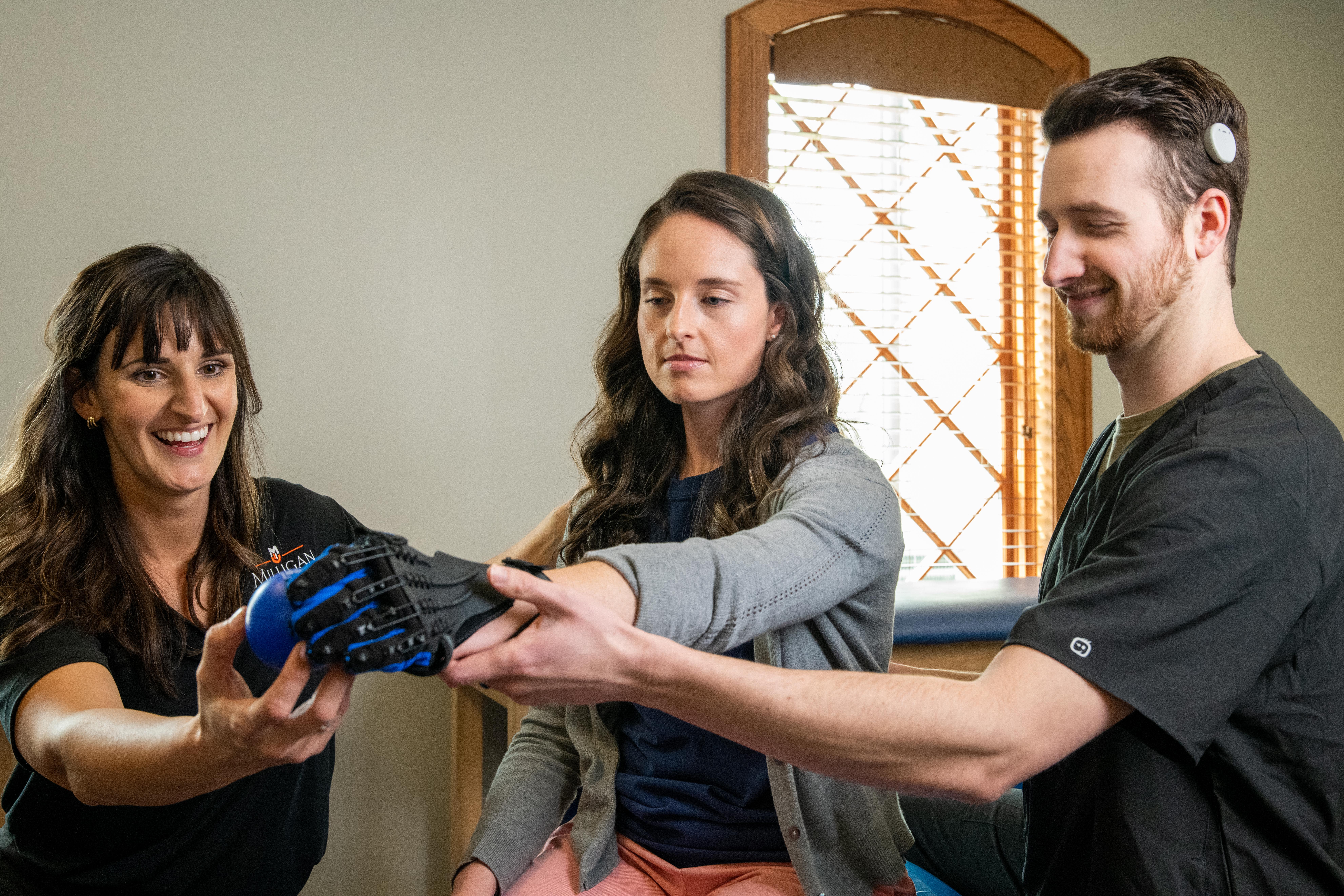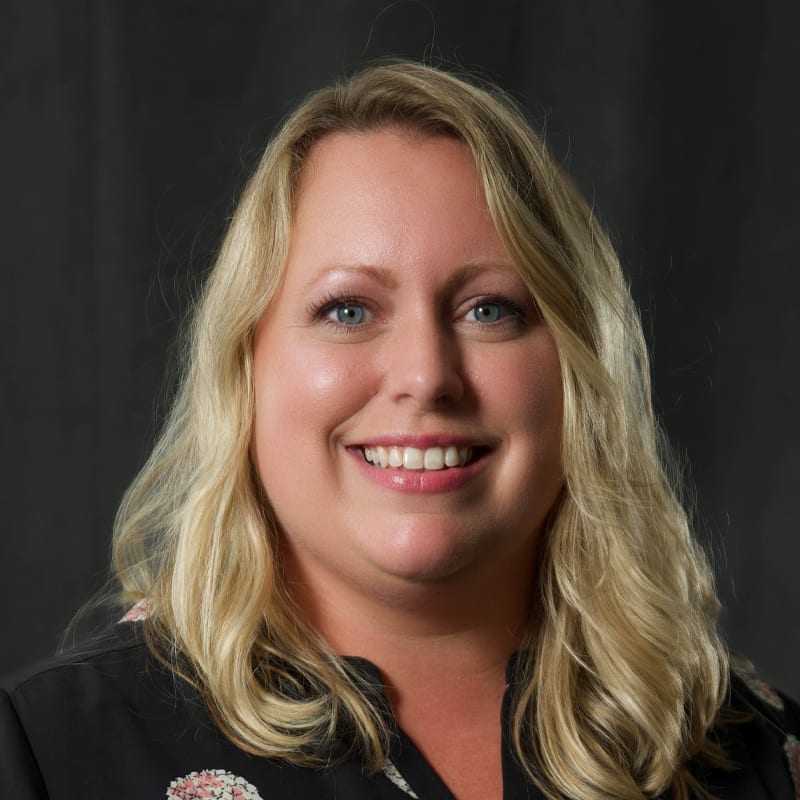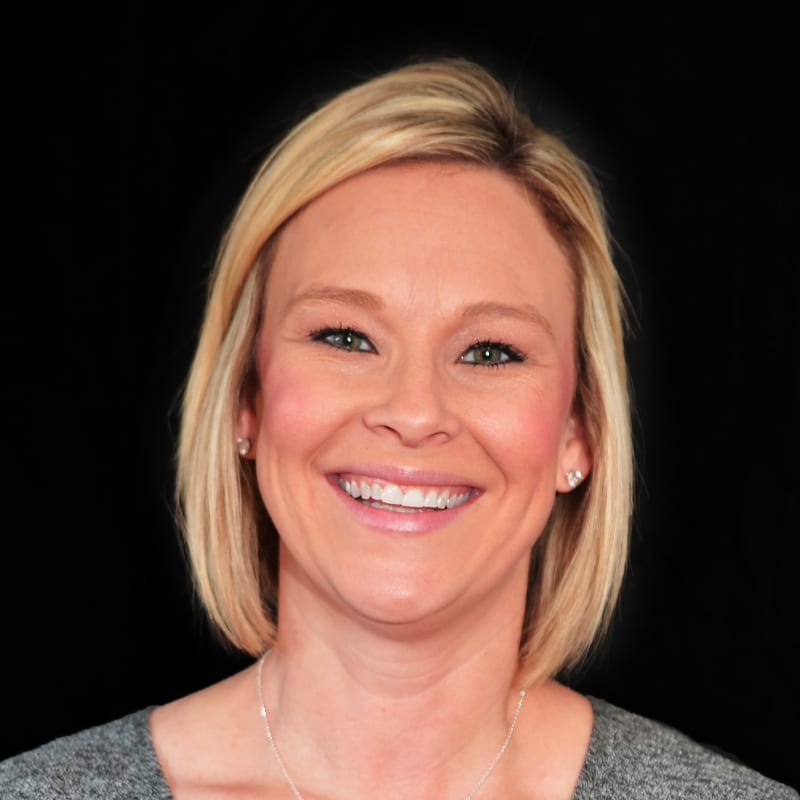Milligan’s Master of Science in Occupational Therapy (MSOT) program prepares servant-leaders who engage in scholarship, contribute to the profession, and offer clinical expertise to the underserved local and global communities. We prepare occupational therapists with critical thinking and clinical skills to assume leadership roles in clinical practice, administration, research, and education.
The holistic program integrates both theory and practice in the art and science of occupational therapy. Partnerships with regional, state, and national health care systems, hospitals, clinics, and non-profit organizations provide a wide range of professional experiences for our MSOT students.
Occupational therapy is a science-driven, evidence-based profession that enables people of all ages to live life to its fullest by helping them promote health and prevent—or live better with—illness, injury or disability. (American Occupational Therapy Association, 2010).
Why Milligan OT?
- Christian world view encourages you to serve others through OT practice
- Emphasis on hands-on, collaborative learning experiences in the classroom
- Faculty work in clinical practice in a variety of areas and bring real-life experiences to the classroom
- Community-based service learning opportunities in underserved settings
- Focus on building practical and creative therapeutic skills to use in all OT settings
- Students are hand-picked for fieldwork sites from 42 different states
In-Demand Profession
Employment of occupational therapists is expected to increase much faster than the average for all occupations, according to the Bureau of Labor Statistics. The average annual salary for occupational therapists is over $76,000. Job opportunities include acute hospitals, rehabilitation, and orthopedic settings, and schools. Driver rehabilitation, training for the elderly, ergonomic consulting, and health and wellness are emerging practice areas for occupational therapy. Our graduates have a very high job placement rate at graduation.
Milligan OT
Milligan’s MSOT program is accredited by the Accreditation Council for Occupational Therapy Education (ACOTE) of the American Occupational Therapy Association (AOTA). ACOTE Address: 6116 Executive Boulevard, Suite 200, North Bethesda, MD 20852-4929. Phone: 301.652.AOTA. Website: www.acoteonline.org
The program is a full-time two-and-a-half year program, including fieldwork experiences. Courses meet four days a week (Monday through Thursday). The 79-hour-MSOT curriculum utilizes a developmental course sequence, which includes coursework in three essential components: basic skills, the occupational therapy process (with persons, groups, and populations), and capstone experiences. The program prepares students with a breadth and depth of information for practice as a generalist with broad exposure to current practice settings (e.g., hospital, school, long-term care, community, and out-patient) and emerging practice areas (e.g., health and wellness services, low vision services, psychosocial needs of children and youth, and consulting and home modification). The curriculum prepares students for physical and mental health practice with a variety of populations including, children, youth, adults, and older adults.
The length of the program follows the typical progression and pattern of graduate course work for entry-level occupational therapy education to meet standards for graduate education and to meet the expected outcomes of our graduates. In addition, the length of the program is comparable to other institutions with graduate, entry-level occupational therapy programs. All students are admitted to the occupational therapy program on a full-time basis. Completion of all degree requirements on a full-time basis will take a minimum of two and one-half years. In exceptional cases, part-time status may be granted by the program director. Part-time students must complete all degree requirements within a period defined by the program director and faculty council of the occupational therapy program. This time period must not exceed five years. Students must complete Level II fieldwork within 24 months following completion of the didactic portion of the program.
Developmental Course Sequence
COMPONENT I: BASIC SKILLS
The basic skills component represents subject matter which serves as the foundation for the professional theories and practice methods. This component includes applied science courses, research methods and design, and an introduction to the profession of occupational therapy.
COMPONENT II: THE OCCUPATIONAL THERAPY PROCESS
The core of this curriculum, the occupational therapy process, includes the study of occupation and therapeutic use of occupation, typical life span development, and health and wellness with integration of the major theories and practice methods of occupational therapy. A developmental sequence (i.e., from children to older adults) is utilized to facilitate continuity and consistency from one course to another. Major topics dealing with disease processes, the physical and psychosocial impact of dysfunction, wellness, assessment, intervention, adaptation, and emerging practice areas are incorporated. This sequence of courses promotes the development of resourceful and critical thinking skills in the occupational therapy process with persons, groups, and populations. Self-reflection is facilitated to expand professional and ethical practice and servant leadership. An introduction to clinical experiences through Level I fieldwork is included.
COMPONENT III: CAPSTONE EXPERIENCES
The capstone component of the curriculum is designed to move the student further toward the objective of integrated critical thinking for generalist practice as an entry-level occupational therapist with expertise in therapeutic use of occupation and therapeutic use of self. Topics covered in these courses include: administration and leadership, professional development, directed research, and Level II fieldwork. At the end of this component of the curriculum, the student should be prepared to sit for the NBCOT certification examination for the occupational therapist.
Our mission is to prepare occupational therapists as servant-leaders who engage in scholarship, contribute to the profession, and offer clinical expertise to the underserved local and global communities. To that end, Milligan’s MSOT program will prepare you with critical thinking and clinical skills to assume leadership roles in clinical practice, administration, research, and education. The program is holistic in nature and integrates both theory and practice in the art and science of occupational therapy. Partnerships with regional, state, and national health care systems, hospitals, clinics, and non-profit organizations provide a wide range of professional experiences for our MSOT students.
The total number of graduates from the Milligan University Master of Science in Occupational Therapy program during the 3-year period of 2021-2023 was 92, with an overall graduation rate of 96%.
As a graduate of our program, you will be eligible to sit for the national certification examination, administered by the National Board for Certification in Occupational Therapy (NBCOT), located at One Bank Street, Suite 300, Gaithersburg, MD 20878. NBCOT’s phone number is (301) 990-7979 and its web address is www.nbcot.org. See our NBCOT Pass Rate. After successful completion of this exam, you will be an Occupational Therapist Registered (OTR).
Passing the NBCOT Certification Examination is necessary, but each state may have additional requirements for state licensure. You can find information about state licensure here. A felony conviction may affect a graduate’s ability to sit for the NBCOT certification examination or attain state licensure.
| Year | Students Entering/ Graduating | Graduation Rate | NBCOT New Graduate Pass Rate |
| 2021 | 32/31 | 97% | 100% |
| 2022 | 32/32 | 100% | 97% |
| 2023 | 32/29 | 91% | 98% |
| Total 3-year | 96/92 | 96% | 98% |
ACOTE® accredited occupational therapy and occupational therapy assistant educational programs satisfy the states’ educational requirements in all states, the District of Columbia, and Puerto Rico. Students graduating from an ACOTE® accredited occupational therapy and occupational therapy assistant educational program are eligible to take the National Board for Certification in Occupational Therapy (NBCOT) certification exam and apply for licensure in all states, the District of Columbia, and Puerto Rico. For more information regarding state qualifications and licensure requirements, please refer to the AOTA State Licensure webpage.

Kelsie Gustason and Makenzie Holtermann were selected as trainees for the 2020-21 Vanderbilt University Consortium Leadership Education in Neurodevelopment and Related Disabilities (LEND). An intensive 300-hour training program. LEND prepares professionals in a variety of specialties to provide care to children and youth with special healthcare needs.

Get ready to change lives
Admission
Milligan’s Master of Science in Occupational Therapy (MSOT) program is designed for students who have an earned bachelor’s degree and who have completed the prerequisite requirements for admissions to the program. Baccalaureate degrees can be in a variety of academic areas, some of which include human performance and exercise science, human relations, development, sociology, biology and psychology. Milligan’s MSOT program starts one class a year each August. Admission is very competitive in the MSOT program; therefore, it is highly recommended to have your completed application submitted to OTCAS by September 1 for verification. The application must be verified in OTCAS by October 1 in order for the application to be considered for admission.
To apply, submit an online application through OTCAS, an Occupational Therapy centralized application service. The application must be verified in OTCAS by October 1 in order for the application to be considered for admission.
The minimum requirements to be considered for admission to the MSOT program are as follows:
- A baccalaureate degree from a regionally accredited institution with overall grade point average of 3.0.
- GRE no longer required!
- Observation experience in at least two occupational therapy clinical settings with a minimum of 40 documented hours or a disability related work/volunteer experience with the proper documentation.
- Three completed reference forms/letters through OTCAS from persons who have adequate knowledge of the applicant’s Christian commitment, character, and professional qualities of potential for success as a graduate student. One must be from a professor.
- A completed baccalaureate degree that includes the following prerequisite courses:DISCOUNTED PRE-REQ COURSESYou might be able to take some prerequisite courses at Milligan at a reduced rate. Learn more »
- Math and Science: 9-12 semester hours
- Math Course
- Anatomy & Physiology I (4 hrs)
- Anatomy & Physiology II (4 hrs)
- Social Science: 9 semester hours
- Intro to Psychology
- Intro to Sociology OR Intro to Anthropology
- Human Development OR Developmental Psychology
- Communication: 6 semester hours
- Writing/English
- Public Speaking
- Medical Terminology: 1-3 semester hours
- Math and Science: 9-12 semester hours
Substitution or waiver of requirement for any of the above prerequisite courses may be granted by the occupational therapy program admissions committee on an individual basis.
Prospective students meeting the minimum admission criteria will be considered for an interview. However, meeting the minimum requirements does not guarantee an invitation for an interview. Final selection of students will be made by the admissions committee of the occupational therapy program.
Matriculation of a cohort of new students is contingent upon an adequate number of admitted applicants.
INTERNATIONAL STUDENTS
International students must provide proof of the Test of English as a Foreign Language (TOEFL) score of at least 79. Please have your score sent directly from the Educational Testing Service to Milligan’s PA Admissions Office. All international applicants must have taken the TOEFL within the last two years. You cannot be exempted from this requirement unless English is your native language, you are a U.S. citizen, or you have received an undergraduate or graduate degree from an accredited U.S. college or university.
After a student is admitted, there is required documentation to submit BEFORE form I-20 can be issued. Students may begin gathering and submitting this information even prior to admission, but no I-20 will be issued until a prospect has been fully admitted AND has submitted the required documentation.
Current Milligan undergraduate students may be eligible for the early acceptance program. You may apply as early as your Junior year. Learn more »
All students at Milligan are expected to uphold the expectations and responsibilities for student lifestyles at Milligan University. Milligan University adopts specific rules on the basis of the belief that God’s Word, as the final rule of faith and practice, speaks on many matters pertaining to personal conduct. Therefore, behavior that conflicts with Scripture is unacceptable. Historically, communities also have developed guidelines that help put into practice basic moral and social principles. Such standards serve as a guide toward worthwhile goals relevant to one’s academic, spiritual, social, and physical well-being.
Students should consult the Student Handbook for further guidance regarding acceptable personal lifestyle and conduct while enrolled at Milligan University. A student’s matriculation and enrollment at Milligan University is their pledge to abide by the policies and expectations outlined in the Student Handbook and Catalog.
I certify that all information given in this application is true and correct. If I am accepted as a student and choose to enroll, I pledge to abide by the Christian values as reflected in Milligan’s Lifestyle Expectations.
Our MSOT program is priced competitively, and we will work with you individually every step of the way to help investigate all the options available for financing your education. Financial aid is available for graduate students. Ask us how our costs compare to other similar institutions and programs!
CURRENT COSTS
| MSOT | 2023-2024 Academic Year | 2024-2025 Academic Year | 2025 Field Work | Total Cost of Program (2.5 yr. program 2023-2025) |
| Tuition | $29,520 | $27,060 | $8,200 | $64,780 |
| Student Fee | 1,605* | 1,030* | 0 | 2,485* |
| Estimated Books and Supplies | 1,100 | 1,100 | 0 | 2,200 |
| Estimated Loan Fees | 220 | 220 | 110 | 550 |
| Total | $32,345 | $29,360 | $8,310 | $70,015 |
All fees, books, and supplies figures noted above are estimates and subject to change.
*Please note that this figure does not include required liability insurance and background check expenses.
ESTIMATED OFF-CAMPUS LIVING EXPENSES (PER MONTH)
| Housing/Food | $ 900 |
| Personal Expenses | $ 440 |
| Total | $1,340 |

OT, U.S. ARMY
“Milligan prepared me to use client-centered approaches and to treat the person, not just the diagnosis. I was taught how to think outside the box when it comes to creating interventions best suited for the client (as well as how to make it fun!).”
Taylor recently was commissioned as an OT and officer in the United States Army, where she plans “to use the holistic side of OT to educate active duty soldiers on how to live physically, mentally, and spiritually healthy lifestyles.”
OT Faculty
Teaching is more than a job to our faculty—it’s a mission. Milligan faculty are dedicated Christian professionals who go above and beyond to challenge you and stretch your mind. They bring real world experience into the classroom every day because they continue to work in the fields they teach. Small class sizes provide personal interaction, exceptional training, and hands-on lab experience that will prepare you for success as an occupational therapist.










